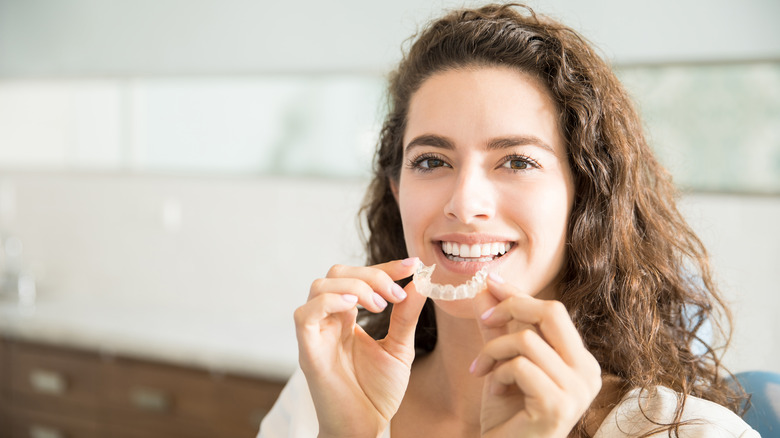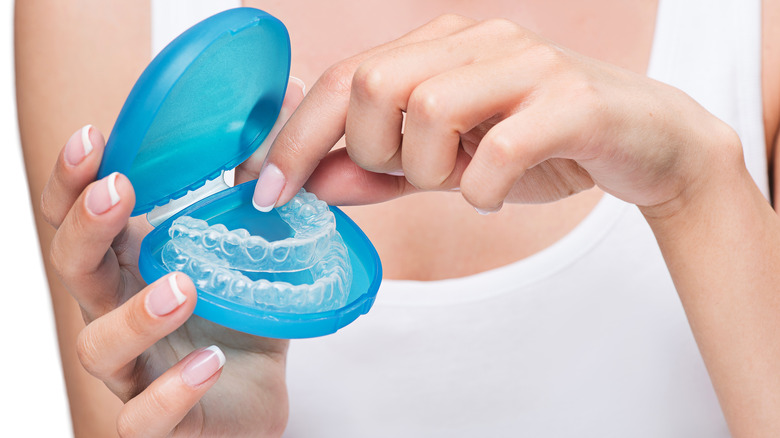This Is What You Shouldn't Be Using To Clean Your Mouthguard
Wearing a mouthguard at night is a great way to protect your teeth and prevent them from clenching and grinding against each other while you sleep (via LiveStrong). Since mouthguards are constantly in your mouth, however, it doesn't take long for them to get dirty and become filled with germs and bacteria.
"A variety of bacteria, yeasts, and molds reside within everyone's mouth," Dr. Kevin Henner, a dentist and president of the New York State Dental Association, told LiveStrong. "These microorganisms can collect and accumulate on occlusal guards when worn over time, along with plaque and tartar." That's why it's important to clean them daily.
But whatever you do, don't clean your mouthguard with anything that can potentially ruin it and degrade the material. For instance, chemical agents like vinegar, hydrogen peroxide, and alcohol can discolor and damage the material of the mouthguard, according to LiveStrong. The same goes with denture cleaner and mouthwash. While you certainly want to kill any potentially harmful germs and bacteria on your mouthguard, you don't want to accidentally stain and erode it.
How to correctly clean your mouthguard
Fortunately, cleaning your mouth guard the right way is relatively simple and easy. To clean it correctly, use a soft bristle toothbrush and gently brush your mouthguard with nonabrasive toothpaste (via Healthline), as this will help dislodge any plaque and bacteria that it may be harboring. This needs to be done very gently, however. That's why it's best to avoid using hard toothbrushes or more abrasive types of toothpaste. After you're done brushing the mouthguard, you can rinse it off with warm water and let it dry before putting it back in the case.
You can also use soap and warm water instead of toothpaste to clean your mouthguard. It's best to clean it with either dish soap, antibacterial soap, or castile soap, but you can use others as long as they're mild and alcohol-free. Just like with the toothpaste, you can use a soft toothbrush to gently brush the soap on the mouthguard and rinse and dry it when you're done (per Healthline).


